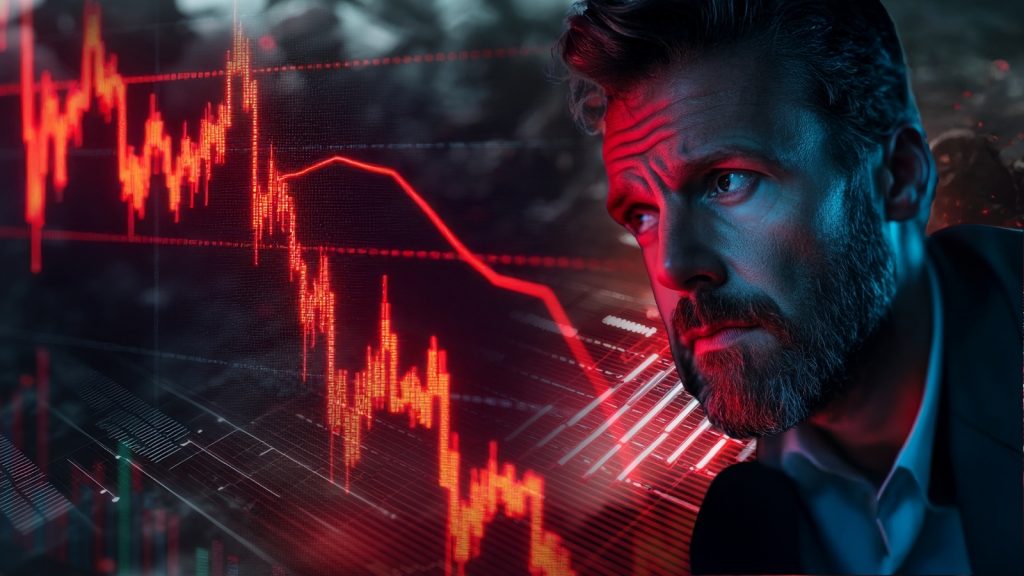The new world order requires a new investment strategy
Author: Daniel Stüssi – Published on 27 March 2025 in Smart Investor
The world is experiencing an unprecedented upheaval that marks the end of the American post-war order. The withdrawal of the USA from its role as the military protector of Europe marks the end of an era that has ensured stability and security on the continent for decades. The “Pax Americana” is over and the image of the USA as a benevolent hegemon that protects Europe is a thing of the past.
Under Donald Trump, the protective shield from which Europe has benefited since the Second World War has effectively been dismantled. This geopolitical turning point presents the EU with new, serious challenges, but also offers the opportunity to become more independent of the USA.
Enormous growth in European sovereign debt
The European Union is now being forced to fundamentally rethink its security policy. The member states must modernize and rearm their military forces, which have been neglected for a long time. This necessity is leading to a dramatic increase in military spending, which could rise from the current level of around 1.5 percent of the EU’s GDP to between 2.5 and 3.5 percent. This corresponds to an estimated additional €300 billion per year. It is also expected that the EU countries will cover a large part of the approximately €450 billion reconstruction fund for Ukraine. Where will the money come from? Through additional debt and taxes. The EU’s debt amounted to €14,479 billion at the end of September 2024 and it is growing at an alarming rate.
Circumventing the debt brake
Ursula von der Leyen, President of the European Commission, has already announced special clauses to bypass the Maastricht stability rules in order to meet these new financial obligations. In Germany, the Bundestag overrode its own debt brake rule on 18 March 2025 and approved a “special fund” of €1 trillion for the repair of German infrastructure and for military spending. Future generations will pay the bill.
After the borrowing spree, comes inflation
These developments are alarming for the capital markets. Germany is likely to lose its AAA rating. The creditworthiness of many EU countries could erode further as questions arise over how the additional debt will be financed. The balance sheets of Eurozone banks are already overloaded with government bonds. At the end of 2024, the value of these bonds amounted to €6,770 billion, which accounts for 19% of the banks’ total assets. It is highly questionable whether the additional issue volume required can be absorbed by the market. It is therefore likely that the European Central Bank (ECB) will finance a significant proportion of this debt, which in turn is likely to further fuel inflation. The purchasing power of bank deposits and existing bonds is constantly decreasing.
Threat of expropriation
The confiscation of larger assets to pay off national debts is also not far-fetched, as the call for taxes on the rich and the collection of such funds by the EU’s planned asset register suggest. In mid-March 2024, Ursula von der Leyen posted on X that the EU is working with its institutional partners to “convert private savings into urgently needed investments.”
The time to act is now
In view of this new situation, savers and investors urgently need to rethink and adapt their investment strategy to the new reality without delay. In the coming months, new issues of government bonds will come onto the market and possibly trigger distortions. Irrespective of this, an expansion of the money supply by the ECB is very likely. It is also conceivable that emergency legislation, as implemented in Cyprus in 2013, could be used to confiscate some of the savings in banks. A smart strategy could therefore be to distance oneself as effectively as possible from money kept in bank accounts, bonds and the Euro in general.
Demand for Real assets
Even though the gold price is currently in very high levels, the global crises and expansion of the money supply will probably continue to drive up the price even further up in the coming months. It should therefore still be worth investing in physical gold and silver. It also makes sense to focus on value stocks of financially sound companies that have little debt and whose business models satisfy people’s basic needs. Such companies will also be able to pay a dividend even in times of recession or during a crisis. A small share of Bitcoin also belongs in every portfolio. This “digital gold” is independent of central bank policy and can serve as a suitable store of value with constant demand and a clearly limited supply.
When markets crash, cash is king
In addition, a liquidity component of around 10 – 20% in Swiss francs is part of a strategy that’s well adapted to the current geopolitical changes. With this “dry powder”, undervalued companies can be acquired cheaply in the volatile markets that lie ahead.
This is what the portfolio of our investment company RealUnit Schweiz AG looks like. Our goal is long-term value preservation and increased protection against crises and expropriation. Our time-tested real asset strategy has been built and optimized over 25 years.
Daniel Stüssi, CEO and Swiss financial expert at RealUnit Schweiz AG. This is a listed investment company based in Baar near Zug that invests in broadly diversified real assets. Its goal is to protect the assets entrusted to it as best as possible against crises and loss of purchasing power. By purchasing RealUnit shares or share tokens, you participate in a stable-value portfolio of physical gold, silver, Bitcoin, and shares of companies with crisis-resistant business models. This way, you can protect your savings from the risk of expropriation or a financial crisis. RealUnit professionally takes care of preserving the value of your money. If you are interested in learning more about this topic, subscribe to the YouTube channel “Klartext Finanzen” and visit www.realunit.ch.





